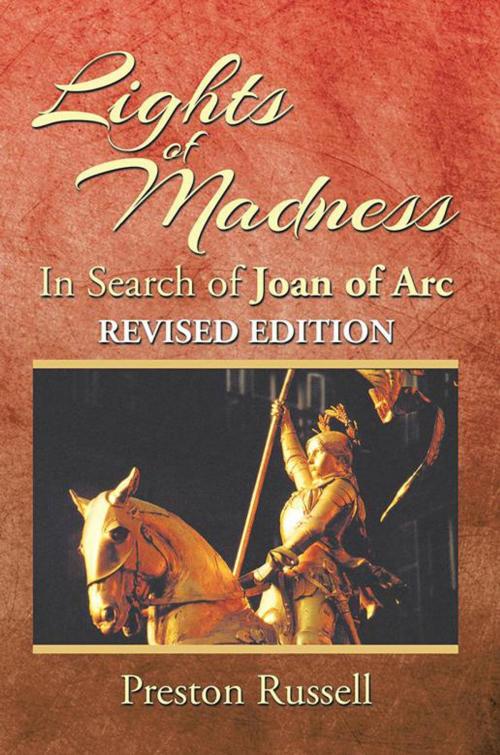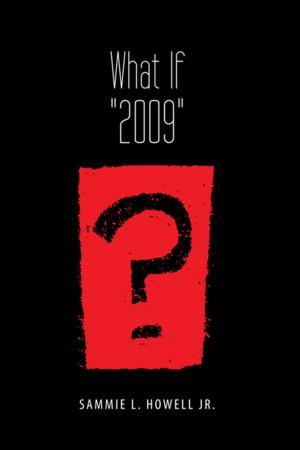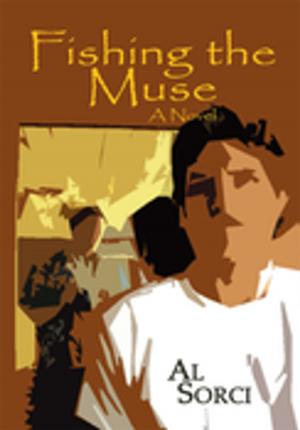| Author: | Preston Russell | ISBN: | 9781499040562 |
| Publisher: | Xlibris US | Publication: | July 31, 2014 |
| Imprint: | Xlibris US | Language: | English |
| Author: | Preston Russell |
| ISBN: | 9781499040562 |
| Publisher: | Xlibris US |
| Publication: | July 31, 2014 |
| Imprint: | Xlibris US |
| Language: | English |
Joan of Arc was burned alive in 1431, condemned for her heresy which defied church and worldly authority. Since childhood, she claimed to have heard daily voices from God. These angelic messages miraculously guided Joan to drive the English out of France and end the Hundred Years War. Author Preston Russell traces her extensive trial testimony, seeking to find her own voice from five hundred years ago. He also examines her many faces evolving in world literature, theatre, and film, extending from Shakespeare and Voltaire to Mark Twain and George Bernard Shaw. Becoming a world symbol, Joan of Arc has been embraced by Napoleon, Nazi Germany, Marxist ideology, and French political parties. The Catholic Church has also claimed her as a Saint. Competing interpretations have strived to capture her enduring mystery. Was Joan really a military genius--or actually a man--or a mystic, a witch, a liar, a lunatic, medieval religious reformer, fascist, communist, proto-feminist, heretic or saint? With his background as a physician, Dr. Russell concludes with diverse medical attempts to define Joan of Arc. Theories of insanity since Hippocrates are traced through to 20th century psychiatric theories, among them Sigmund Freud, Carl Jung, and Albert Schweitzer. Yet 21st century brain research is discovering surprising aspects of the minds split awareness and subconscious abilities. Neuroscientists are presently chasing the elusive ghost hiding within the machine of our physical reality, beginning to explore the metaphysical realm of universal spirituality. Russells search for Joan of Arc seeks a reconciliation between science and religion.
Joan of Arc was burned alive in 1431, condemned for her heresy which defied church and worldly authority. Since childhood, she claimed to have heard daily voices from God. These angelic messages miraculously guided Joan to drive the English out of France and end the Hundred Years War. Author Preston Russell traces her extensive trial testimony, seeking to find her own voice from five hundred years ago. He also examines her many faces evolving in world literature, theatre, and film, extending from Shakespeare and Voltaire to Mark Twain and George Bernard Shaw. Becoming a world symbol, Joan of Arc has been embraced by Napoleon, Nazi Germany, Marxist ideology, and French political parties. The Catholic Church has also claimed her as a Saint. Competing interpretations have strived to capture her enduring mystery. Was Joan really a military genius--or actually a man--or a mystic, a witch, a liar, a lunatic, medieval religious reformer, fascist, communist, proto-feminist, heretic or saint? With his background as a physician, Dr. Russell concludes with diverse medical attempts to define Joan of Arc. Theories of insanity since Hippocrates are traced through to 20th century psychiatric theories, among them Sigmund Freud, Carl Jung, and Albert Schweitzer. Yet 21st century brain research is discovering surprising aspects of the minds split awareness and subconscious abilities. Neuroscientists are presently chasing the elusive ghost hiding within the machine of our physical reality, beginning to explore the metaphysical realm of universal spirituality. Russells search for Joan of Arc seeks a reconciliation between science and religion.















